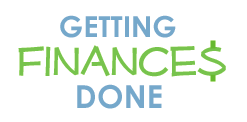Why you shouldn’t trust home mortgage lenders and mortgage calculators – A better way to calculate how much mortgage you can afford
Written by Sam - 13 Comments » The question of how much of a mortgage you can afford is a tricky question. Make the wrong decision and you will constantly be strapped for the financial resources you need. The fact is, housing is the largest single expense for most people (other than taxes). The size of your mortgage can literally make the difference between financial happiness and financial misery. The term “house poor” means that you have such a high mortgage payment, you can hardly afford your living expenses let alone anything purely for your lifestyle or enjoyment. I prefer to be “house rich” by buying a house that is well below what the bank is willing to loan you. By buying a less expensive house and lowering your monthly payment by up to a few hundred dollars, you can have more than enough money for vacations, grown-up toys or any of the things you value. Rather than struggling to simply buy furniture for your home (without going into debt), you could fully furnish your home pretty quickly and make it suit your taste perfectly.
The question of how much of a mortgage you can afford is a tricky question. Make the wrong decision and you will constantly be strapped for the financial resources you need. The fact is, housing is the largest single expense for most people (other than taxes). The size of your mortgage can literally make the difference between financial happiness and financial misery. The term “house poor” means that you have such a high mortgage payment, you can hardly afford your living expenses let alone anything purely for your lifestyle or enjoyment. I prefer to be “house rich” by buying a house that is well below what the bank is willing to loan you. By buying a less expensive house and lowering your monthly payment by up to a few hundred dollars, you can have more than enough money for vacations, grown-up toys or any of the things you value. Rather than struggling to simply buy furniture for your home (without going into debt), you could fully furnish your home pretty quickly and make it suit your taste perfectly.
We learned this lesson of being “house poor” the hard way. Our home is on the high end of what we really should have purchased. While we can afford the payment and our living expenses with funds to spare, we don’t have much wiggle room. When we had some significant medical expenses a couple years back we were almost forced to move. We still haven’t furnished our home to our taste (partially because of a lack of motivation and partially due to finances). When expenses are normal there’s no problem, but at the first sign of an emergency we really have to plan to make it through. Budgeting and small raises over time have alleviated our tight financial situation quite a bit but I still would have chosen a less expensive house if I started over again. In fact, we’ve considered moving several times and may yet decide to do so.
How to calculate how much mortgage can you afford?
Banks will tell you that you can afford up to 41% of your gross income as debt (sometimes referred to as the front-end ratio) — If you earn $3,000 a month, you can afford to have $1,230 in debt. But trusting this advice is a big mistake. First of all, banks are self-interested. Taking on debt that’s 41% of your income is what the bank feels comfortable lending you, not what you really can afford. Borrowing the full amount that the bank is willing to lend is a sure way to get in over your head. Your situation can be even worse if you make regular charitable contributions. Many people donate 10% of their income as tithing or for charitable causes. This 10% is part of your fixed expense structure and really should be considered more like a debt payment when calculating your total debt load. This also applies to expenses like child support or alimony.
Here’s another, more accurate way of calculating how much house you can afford. Consider it the “altered” front-end ratio.
- Calculate the monthly payment for the loan amount you’re considering.
- Calculate all your expected home expenses including property taxes, insurance, and utilities. If you’re not sure how much they will be, your realtor might now. Even better, ask someone you know living in a comparable house how much their total housing expenses are.
- Calculate the total monthly debt payments you already make.
- Calculate any fixed charitable contributions you consistently make.
- Calculate any other payments that are required every month such as child support or alimony.
- Add all the amounts together and divide the total by your gross income (income before taxes). If the result is less than 41% (.41) you can probably afford the house without being too “house poor.”
Don’t believe what home mortgage lenders tell you that you can afford
Our original mortgage payment (we’ve since paid our mortgage down about $20,000) as a percentage of our gross income is only 24%. By the bank’s definition we could have afforded almost twice the house and mortgage, yet we still felt house poor. When adding in housing expenses and charitable donations this ratio jumps to 37%. Still within 41% recommended above but much closer to the threshold.
If you define 41% as being “right on the edge of what you can comfortably afford”, 37% seems to accurately reflect how I feel about our financial situation – we can afford our house and have a decent amount of disposable income assuming we don’t have significant unexpected expenses. Even with unexpected expenses we can get through since we have total control over our budget. We can even occasionally deal with these emergencies without dipping into our emergency fund. But without total control over our budget, we probably would end up going into consumer debt to go on vacations or pay for emergencies.
What if my ratio is over 41%?
If your altered front-end ratio is only a few percentage points above 41%, you may be ok as long as you get your budget under tight control. That means you know exactly what is coming in and how every dollar of income will be spent before you spend it. You still may want to consider moving or making a dramatic housing change (like we’ve considered doing).
If you are more than 4 or 5 percentage points about 41% you should probably make a dramatic lifestyle change. Typically that means moving to a less expensive home since that is the easiest expense to decrease significantly. You can only squeeze so much out of your grocery budget. Also keep in mind that a cheaper house typically means lower taxes and utilities.
Don’t believe what mortgage calculators tell you that you can afford
Some people might think I’m crazy suggesting this alternative way to determine how much you can afford. I went online and used some mortgage calculators to see how much they said I can afford and their conservative estimates were $500 more than our actual mortgage payment. That’s ridiculous! If people are to ever get out of the debt death spiral, they have to set themselves up to win and one of the main ways to do so is to make sure you can afford your housing.
I would love to hear from GFD readers how they have determined how much house they could afford. Go ahead and calculate your altered ratio and share it with us. Help us calibrate the scale – does 41% seem to be the right threshold according to your experience? Please leave your comments below.
Posted in Debt, Mortgages | 13 Comments »
Does money buy happiness?
Written by Sam - 9 Comments » Another article from Money magazine writer Jean Chatzky recently caught my eye. The article discussed whether or not money can buy happiness – or more specifically if buying things brings happiness. It caused me to reflect upon the role money has played in my life and how it has or hasn’t contributed to my happiness.
Another article from Money magazine writer Jean Chatzky recently caught my eye. The article discussed whether or not money can buy happiness – or more specifically if buying things brings happiness. It caused me to reflect upon the role money has played in my life and how it has or hasn’t contributed to my happiness.
Little statistical correlation between money and happiness
There’s really no scientific basis that equates money to happiness. In fact, the Money magazine article points out that there’s little difference in the overall happiness of millionaires vs. the middle class. Money can affect happiness if it brings someone out of poverty, but past that it has little to do with overall happiness.
One survey found “virtually the same level of happiness between the very rich individuals on the Forbes 400 and the Maasai herdsman of East Africa.”
Another study actually did find a positive correlation between money and happiness but concluded that the increased happiness was not a result of earning a pre-determined amount of money but rather how much money people made compared to others in their age group. It was a “keep up with the Joneses” mentality.
Yet another survey showed little correlation between money and happiness and points out that those with incomes over $100,000 a year spend 19.9% of their time engaging in leisure activities while those making less than $20,000 spent 34% of their time on leisure activities. This implies that those with more leisure time have more happiness (a conclusion I don’t quite agree with).
Some polls show that Americans are no more happy now than they were 50 years ago despite large increases in the overall standard of living. A Minnesota University researcher postulates that happiness is 50% genetics and 50% determination. As Abraham Lincoln once said “Most people are as happy as they make up their minds to be.”
Spend money on experiences
If you’re determined to spend money in the attempt to find happiness, Jean recommends spending money on experiences rather than objects. Objects may give us a temporary boost in happiness, but most people quickly adjust back to normal levels of happiness where the object becomes part of the norm. On the other hand, if the object gives you particular experiences, the memory of the experience or even friendships created during the experience can produce much longer-lasting, robust happiness.
What would you be doing if you were financially independent?
I was recently contemplating what my life would be like if I were financially independent and had enough money to do or have anything I wanted. What would I do every day? What would I have been doing that evening? As I thought, I realized that I would have spent the evening exactly the way I had just spent it — spending time with my wife and family and engaging in things that I’m passionate about (writing this blog being one of them). I powerfully realized at that moment that money had absolutely no impact on my happiness that day. Having more money I may have spent time with my family in a nicer house or wrote articles for this site on a nicer computer but those things wouldn’t have made me any more happy (with the possible exception having dual monitors which does make me consistently happy).
When I started this website I set three goals for myself:
- Enjoy myself – I would only continue creating and managing this site if I enjoyed doing it. If I found I wasn’t enjoying a majority of the time I spent writing, I would stop.
- Help others – I hope to be able to give others the tools they need to get control of their finances. If I can even help just a few people gain clarity about their finances I’ve succeeded.
- Earn supplemental income – Notice that this is the last and least important goal. If I never make a dime from this site but accomplish the first two goals, this project is a success. As it is, this site actually has generated a decent supplemental income most of which I plan to reinvest in financial management tools or products.
It was clear to me when I created Getting Finances Done that making money couldn’t be my first or only goal. What an empty, meaningless project it would be for me if that were the case. So far it’s been an incredibly rewarding experience as I’ve seen the discussions, comments and questions that have been raised. Doing what I’m passionate about has created way more happiness than any money I’ve made.
Some material things that make me happy
On the other hand, there are some material things that have contributed to my happiness. These are typically things that either a) I consciously enjoy on a daily basis or b) things that promote interaction with others.
Let me give you a couple of examples. I jokingly referred to my dual LCD monitors above. While it may seem bizarre, they truly bring me a degree of happiness. I use them every day and consistently find them improving my work flow and increasing my quality of life. I find conscious enjoyment from them. I haven’t “gotten used to them” so to speak. Maybe my perceived increase in happiness from the dual-monitor goodness is not really an increase in happiness but simply an increase in my standard of living and quality of life. Is there a difference? Would I be less happy without dual monitors? In some small way I think I would be slightly less happy or have less enjoyment but I certainly wouldn’t go into depression or have a significant decrease in happiness.
An example of something that promotes interaction with others is a game (video or board game). My wife and I have been fans of Dance Dance Revolution for some time and have had many opportunities to play with others. This activity has helped us develop relationships with others that bring happiness, both in the moment and ongoing. I realize that the true happiness comes more from the interaction with others than the game, but the game can facilitate increased happiness and is definitely fun to play in the moment. There have been many board games that we’ve played with friends and family to a similar end.
Assessing lifelong learning & the pursuit of happiness
In the end I tend to think that happiness is mostly a choice that can be slightly enhanced or degraded by some material things. But if we’re looking to outward things as the basis for our happiness we’re on unstable ground. Focusing on serving, health, lifelong learning, relationships, and doing things you’re passionate about are much better foundations for persistent happiness. The Get Rich Slowly blog has a nice summary of Ten Steps to Greater Happiness that are more effective than most material attempts at happiness.
Happiness, health, wealth, money
What makes you happy? Does money bring you happiness? Do material things bring you happiness? A little? A lot? What would you do if you were financially independent and could spend your days however you wanted?
Related articles:
- Shopping for happiness? Here’s what to buy [money.cnn.com]
- Ten Steps to Greater Happiness [Get Rich Slowly]
- The Keys to Happiness, and Why We Don’t Use Them [livescience.com]
- Study: Money Does Not Buy Much Happiness [livescience.com]
- Can money buy happiness? [rediff.com]
- Money Won’t Buy You Happiness [forbes.com]
Posted in Money, Relationship | 9 Comments »
Dave Ramsey Resources and Links
Written by Sam - 35 Comments » I’m a big fan of Dave Ramsey and give much of the credit for our financial turn-around to his Financial Peace University program. In fact, friends that we’ve referred to Dave Ramsey’s program have also reported that for the first time they’re on the same page as a couple concerning their finances. I must admit though that the book Financial Peace University wasn’t that great — rather the 3 month program was useful.
I’m a big fan of Dave Ramsey and give much of the credit for our financial turn-around to his Financial Peace University program. In fact, friends that we’ve referred to Dave Ramsey’s program have also reported that for the first time they’re on the same page as a couple concerning their finances. I must admit though that the book Financial Peace University wasn’t that great — rather the 3 month program was useful.
In addition to FPU, Dave Ramsey is mostly known for his daily (week day) radio show and his book “Total Money Makeover.” Over time I’ve come across a lot of information about Dave Ramsey both on his official websites (of which he has many) as well as in forums and blogs. As a benefit to GFD readers, I’ve consolidated the most prominant Dave Ramsey links and resources for easy reference. Some of the Dave Ramsey resources require a subscription (like his “My Total Money Makeover” online subscription) but there is a lot of good information available for free. If you’re new to Dave Ramsey, I would check out the summary on his “Baby Steps” in particular. It is one of the best, most focused approaches to financial goals I’ve come across.
Read more »
Posted in Lists, Personal Finance, Resources | 35 Comments »
Who has the best, most affordable car (auto) insurance? Information on getting a free quote.
Written by Sam - 18 Comments »The latest issue of Money magazine has serveral useful tidbits. Kate Ashford mentions that auto insurance rates are expected to decrease for the first time in eight years. However the decrease is so modest that rates will almost stay flat.
Shop for the best auto insurance rates
That doesn’t mean you can’t save money on car insurance. By doing a little bit of shopping around you can sometimes save litterally hundreds of dollars. If you haven’t shopped rates for a couple of years, now would be a good time.
Save an emergency fund and increase your deductible
One thing Kate mentions is that increasing your deductibles from $300 to $500, for example, can save you up to 30% on your premiums. If you were paying $850 a year on auto insurance a 30% savings would mean $255. In other words, even if you ended up paying your entire $500 deductible, you’d still end up $55 ahead.
One reason a short-term emergency fund is so nice to have is that you can increase your deductible and feel totally comfortable that you’ll have the money to cover the higher deductible if you need it.
Where to shop for auto insurance quotes
Here are a few website to start shopping for auto insurance rates:
- Allstate auto insurance quotes – I recently saw a commercial mentioning that you can get a ballpark quote without having to enter personal information like many sites. Good idea.
- Progressive
- Geico
- insweb.com – Mentioned in the Money magazine article. I wasn’t familiar with them previously.
- State Farm
- MetLife
- Farmers’
- AIG
- Nationwide
- Amica
Please post in the comments if you know of any others or if you’ve had particularly positive or negative experiences with particular providers. I’ll llet everyone know if I have any success finding a lower rate. I’m off to quote land.
Posted in Insurance | 18 Comments »
Applying GTD principles to your personal finances – Part 2
Written by Sam - 10 Comments »

In my previous post about GTD for personal finances (part 1), I covered some basic ways to apply GTD principles in managing your personal finances. Here are 5 more ways you can apply GTD principles to your finances.
Posted in GTD, Personal Finance | 10 Comments »


 Subscribe via email
Subscribe via email  Become a fan
Become a fan Subscribe via RSS
Subscribe via RSS Follow me
Follow me